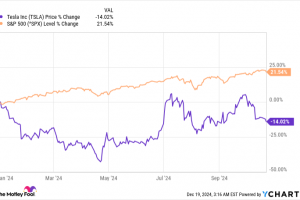
Westend61/Getty Images
Stellar stock-market returns have boosted Americans’ retirement account balances.
The number of 401(k) millionaires is up and average account balances are the highest in two years.
Sources caution anyone thinking about retirement not to get complacent and plan ahead if they want to tap their gains.
The soaring stock market is minting a lot of 401(k) millionaires.
Thanks to a stunning market rally since the beginning of 2023, the number of people with at least $1 million in their retirement account jumped 20% year-over-year in fourth quarter of 2023, with that average account balance rising to the highest level in two years, according to Fidelity.
While it may be tempting for bullish workers to start pulling money out to fund their post-employment lifestyles, or even start taking that money out ahead of retirement, investing experts warn against such considerations even as the market smashes records and optimism is high.
Here are a few things experts say people need to think about if the market’s stellar streak of gains may be tempting them to consider retiring or drawing on those funds early.
People are living longer
Brian Spinelli, the co-chief investment officer at wealth advisory firm Halbert Hargrove, told Business Insider that early retirement based on market performance is irrational simply because people are living longer these days.
“The number of years you’re gonna have to draw on your own money is now getting wider. So if you retire too early, you might run out of runway with your portfolio because you live longer than you thought,” he said.
Early retirees may underestimate the required funds for their desired lifestyle due to overlooking the simple fact that they could live longer than they expect, and untaxed 401(k) contributions may necessitate higher withdrawals to cover taxes.
“The biggest single risk we see is that most investors, without heavy education, underestimate their longevity, time horizon, and opportunity cost, increasing the risk of short-term loss while increasing the risk of late stage aged poverty,” Aaron Anderson,…
..






